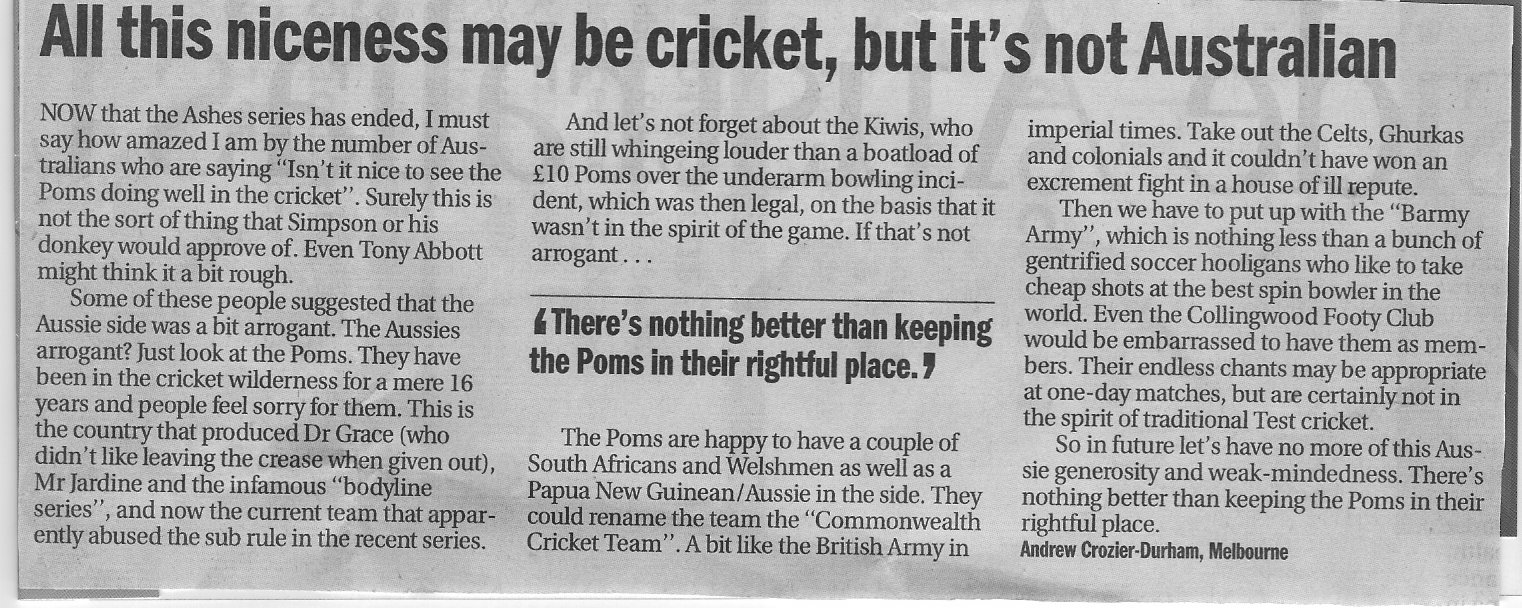It’s a bit late in the day for this, but since I especially kept the newspaper snippet, I thought I’d put it up anyway.
The majority consensus is that the Ashes series just past was one of the best there’s ever been. The Poms deserved to win, and they were entitled to celebrate the way they did – parades through London and all the rest of it. It just showed how much that little urn means to them, and how dearly they’ve wanted to us. It’s a pity that some so-called Aussies are having a much harder time taking our defeat sportingly than the Australian cricket team themselves.
When I was in Melbourne a few weeks ago, I bought a copy of The Age and came across the following bit of nonsense in the Letters section (click to enlarge).
I don’t imagine Simpson’s donkey followed the cricket, and I think Simpson himself would have taken this defeat on the chin and given each of his opponents a big pat on the back and said “Bloody well done, mate”. And I reckon that he’d say this in a very English accent, given that he was born in England and spent little more than four years in Australia. He also had a donkey which he named Queen Elizabeth. I’d also like to point out that the legend of the man and his donkey comes out of our military defeat at Gallipoli. Think about this: one of our most revered national holidays remembers not a victory, but a defeat and all those who died in that defeat. Yet "bitterness" is not a word any Australian associates with ANZAC day. Why then, would we be bitter about the Ashes loss? Both teams gave it their all, thereby producing some of the most riveting test cricket you’ll ever see, and in this instance, England won.
On the issue of arrogance, well, let’s just say that Mr Crozier-Durham of Melbourne obviously has a different definition of the word to what I do. I’m not sure why he calls the Kiwis arrogant for complaining about the infamous underarm bowling incident. He also seems to have a thing against the legendary Barmy Army. I think Shane Warne probably loves playing in front of those guys. Any so called cheap shots directed at Shane Warne were made in good humour. Unfortunately Mr Crozier-Durham doesn’t seem to have a sense of humour. As to the snipe about some Aussies being weak-minded because we can take defeat graciously, pooh to you Mr Crozier-Durham. We’ll give the Poms a good hiding next time, but it won’t be because of people like you.
